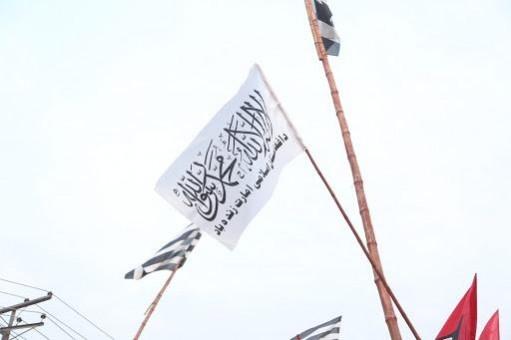The Afghanistan Embassy in Australia has released a series of videos which appear to show appalling atrocities committed by the Taliban as the militant group intensifies its campaign to take control of the country, ABC reported.
The Embassy said it has collected the recordings from several parts of Afghanistan, which have recently fallen back under Taliban control as Western forces withdraw from the conflict-hit nation.

The deeply distressing videos show civilians being beaten, tortured and murdered.
Two separate clips show Afghan civilians -- who the Embassy said are civil servants working for the government of Afghanistan -- being beheaded by the Taliban, the report said.
One video shows Afghan soldiers surrendering and then being shot and killed by men who appear to be Taliban fighters.
Another video shows a man -- apparently a civilian -- being subjected to brutal torture in a public square, while a fifth video showing a woman being whipped by Taliban soldiers for breaking "modesty" laws.
The Embassy also provided photos showing the dead bodies of three people which it has identified as Afghan civil servants.
In a statement, the Embassy said the videos showed "the extreme violence, heartbreaking atrocities, and the horrible war crimes committed by the Taliban in the areas where they have recently entered".
Taliban remained same as before
The Embassy said the videos and photos proved that the Taliban remained wedded to its "distorted interpretation of Islamic Sharia".
"The Taliban's behaviour clearly indicates their vision and ambition for the return of an Emirate with no difference whatsoever from the 90s. Basic human rights are not a matter of concern to them," it said.
According to the report, Rodger Shanahan from the Lowy Institute said the Afghan Embassy in Canberra was intent on undermining the Taliban's attempt to present itself as a more modern and responsible political entity.
"The Afghan government is trying to make the point that Taliban 2.0 is the same as Taliban 1.0," he said.
"They want to counter Taliban messaging. One of the things the Taliban want is legitimacy, and the Taliban are putting forward the line that they're not the same as before, that they've changed. Afghanistan's government is trying to court diplomatic support, and make sure that regional governments which are comfortable with the Taliban taking power, or which loosely tie themselves to the Taliban, are also tied to these atrocities," he added.
Shanahan said that it isn't yet clear if Afghan diplomatic missions in other countries are taking similar steps.
"What will be interesting to see is if this is part of a broader campaign by the Afghan government -- whether this effort has been directed from Kabul to try and begin a concerted information campaign across the world," he said.









